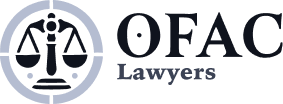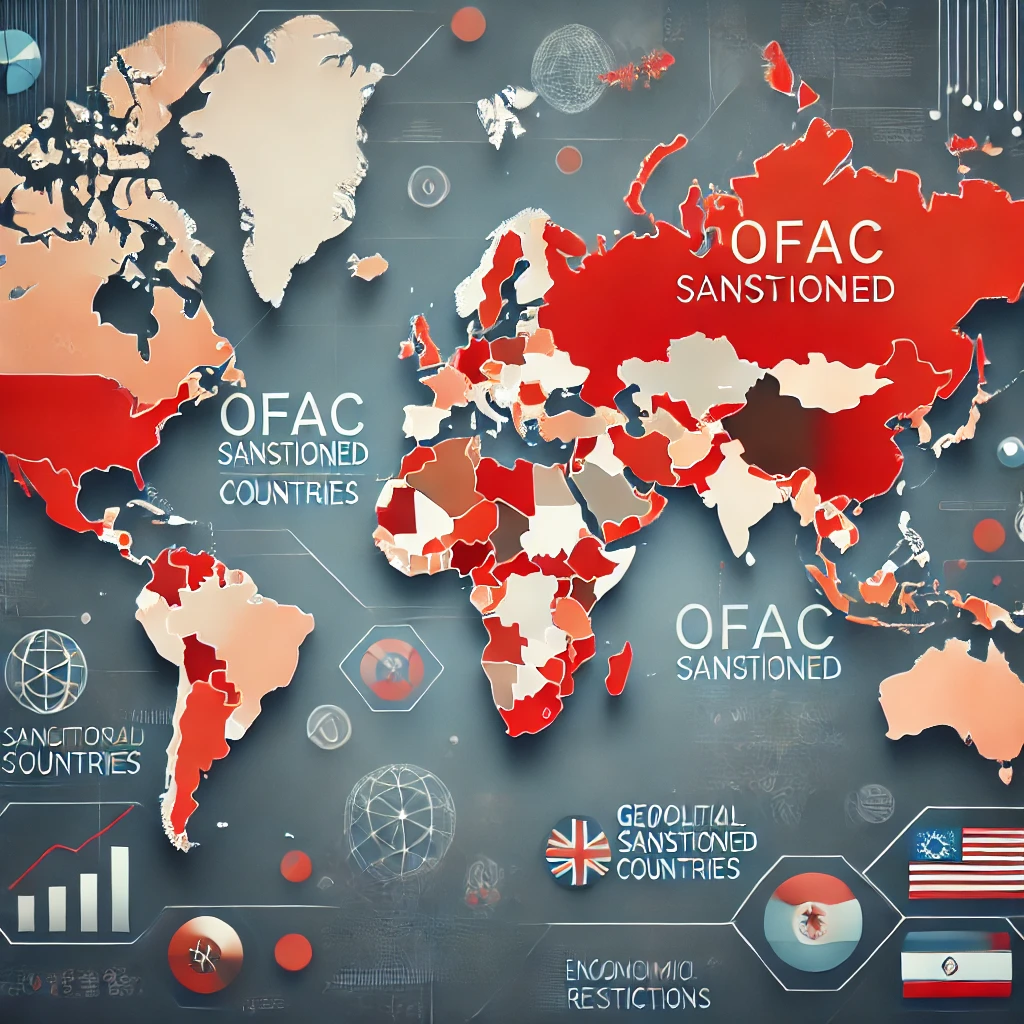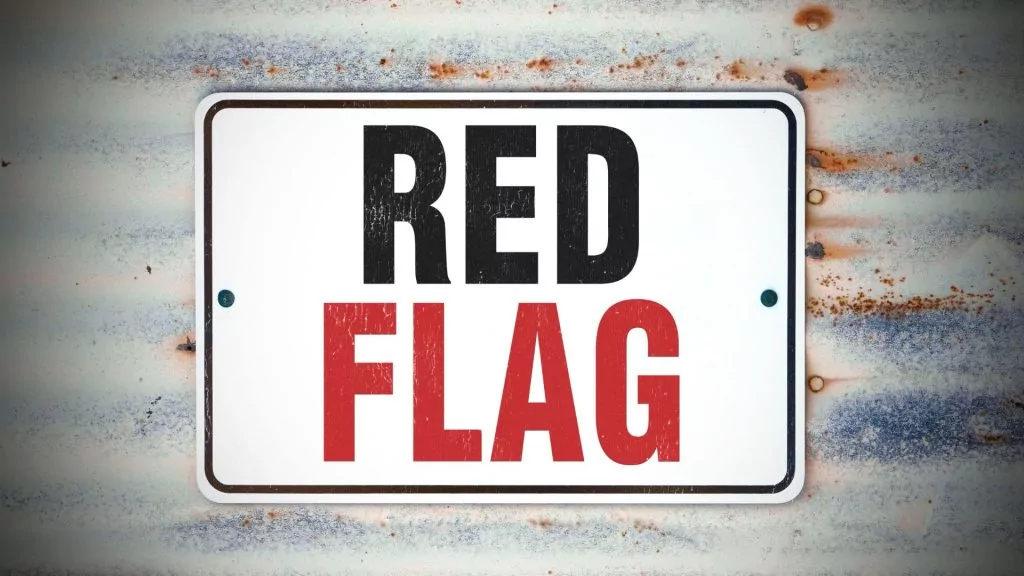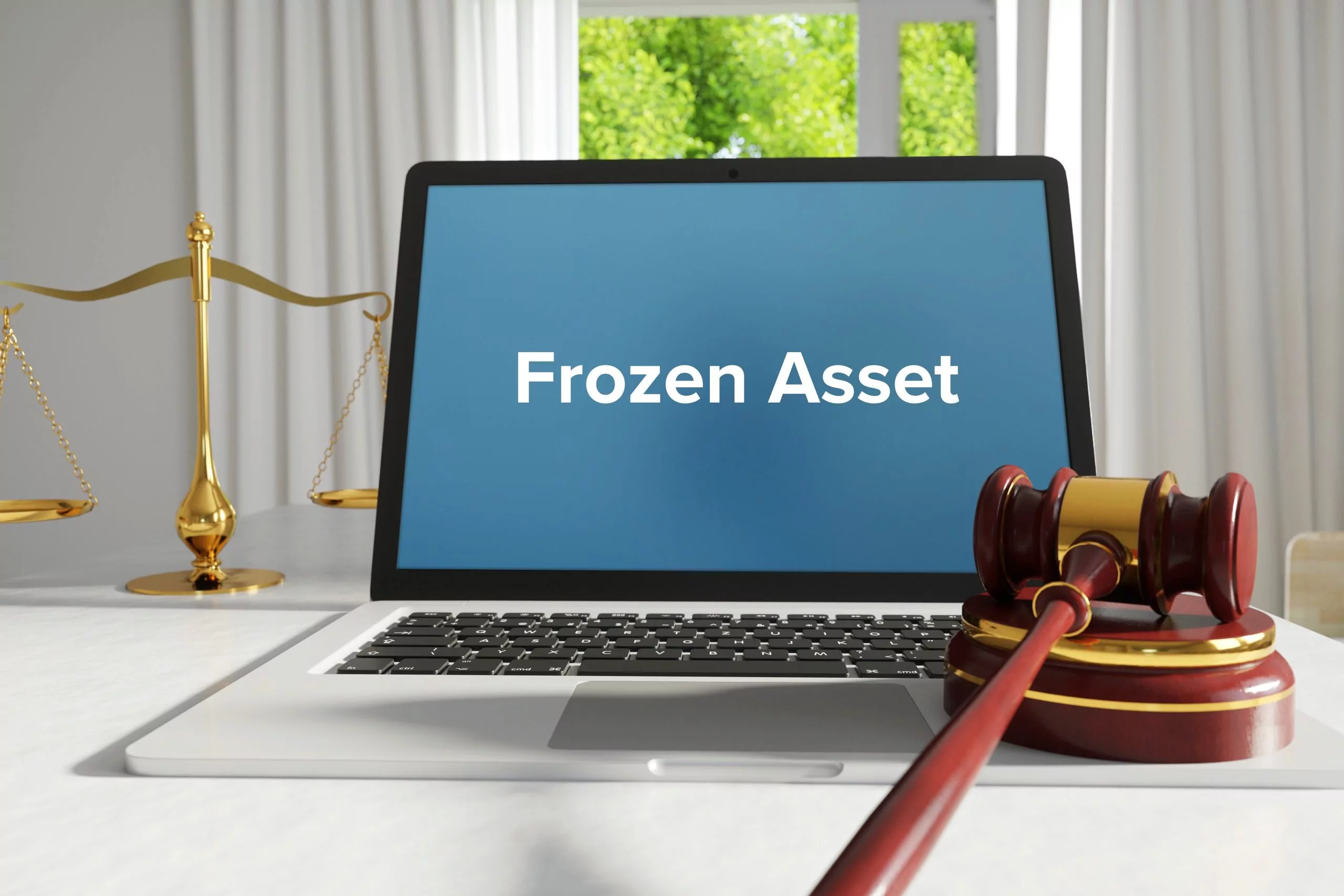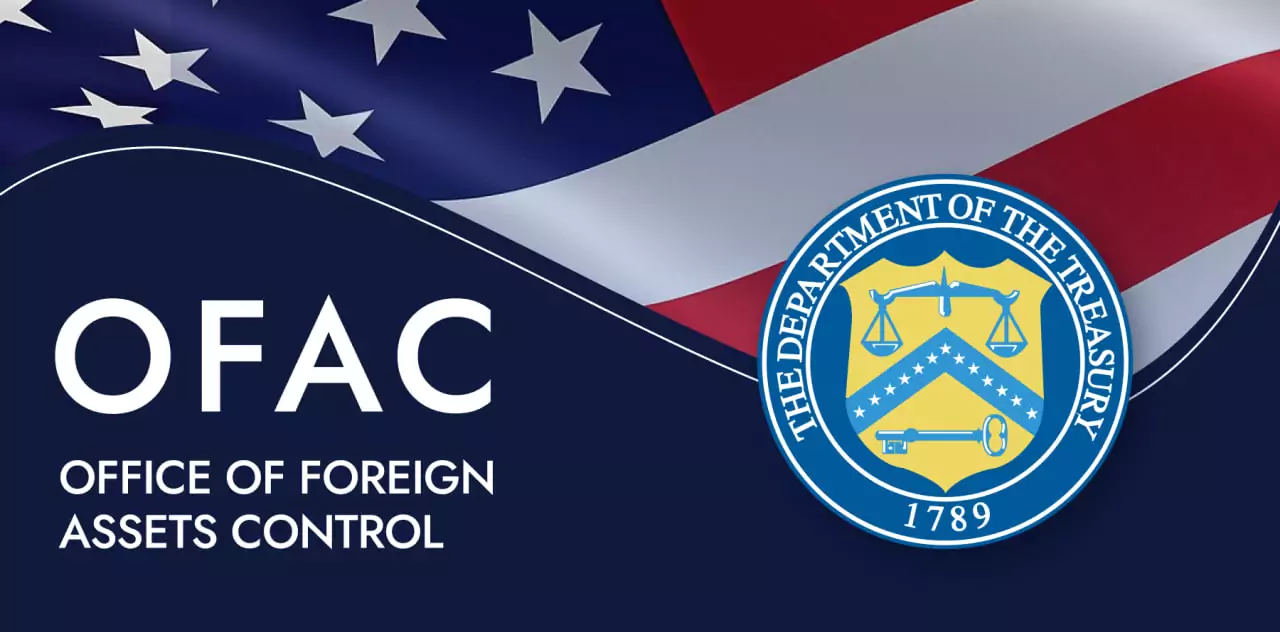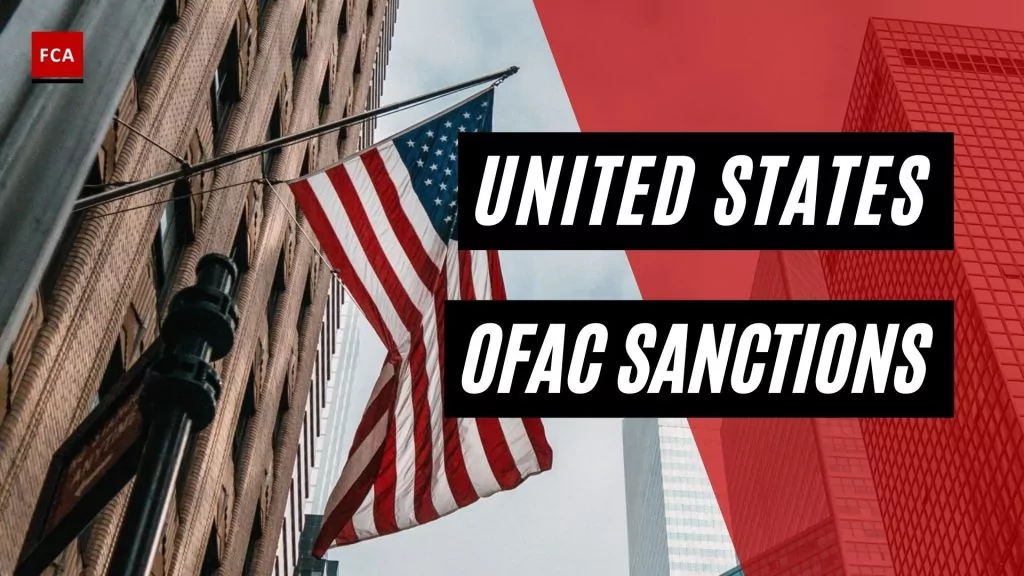
What is the OFAC sanctions list?
The OFAC Sanctions List (Office of Foreign Assets Control) is a tool of foreign policy and national security for the United States of America. It’s used to combat threats from foreign governments, organizations, and individuals whose activities might undermine U.S. interests or global stability. The list includes entities involved in terrorism, illegal drug trafficking, the proliferation of weapons of mass destruction, and other crimes.
Let’s explore the role of searching the sanctions list, which countries are under sanctions, and the impact of OFAC sanctions.

What is an OFAC sanctions list search?
The process of searching the OFAC sanctions and blocked person list is a procedure that helps individuals and organizations identify potential risks of collaborating with partners or counterparties in the blocked person list. The Specially Designated National (SDN) list, blocked persons list and other sanctions lists may include asset freezes, prohibitions on doing business with U.S. companies, foreign financial institutions, and other restrictions. Conducting such a search ensures that counterparties or partners are not on this or blocked persons list either, which is crucial for compliance with laws and the avoidance of legal risks.
How is the Search Conducted?
Searches in the Office of Foreign Assets Control (OFAC) sanctions list are typically conducted through online platforms or official resources. Users can enter the name of a person or company to check if they are subject to sanctions. This data is regularly updated to reflect the current status. Specialized software programs and databases also allow businesses to integrate these checks and other sanctions lists, into their processes, ensuring continuous monitoring.
Why Is Regular Checking Important?
Regular checks of the Office of Foreign Assets Control (OFAC) and foreign financial institutions subject to the OFAC sanctions list are essential to avoid financial and legal consequences. Violations of sanctions regulations can result in substantial fines and reputational damage for companies.
Even accidental dealings with sanctioned individuals or entities can lead to severe repercussions. Therefore, it is crucial for businesses not only to conduct initial screenings for foreign financial institutions subject to asset control but also to continuously monitor updates to the sanctions list files.
Which countries are under OFAC sanctions?
OFAC has sanctions lists administered that apply to a wide range of countries and individuals. Examples of such sanctions lists and countries include:
1. Iran
2. North Korea
3. Cuba
4. Venezuela
5. Russia
These countries often face various economic and trade sanctions and financial restrictions due to their political actions, violations of international agreements, or threats to U.S. national security. However, OFAC sanctions can also target specific sectors of the economy – like energy, finance, or technology.
The OFAC sanctions list is regularly updated and includes sanctions lists for both entire countries and specific entities within strategic sectors. For instance, in the case of Iran, the sanctions target the oil sector and financial transactions, while for Russia, restrictions are imposed on technology exports and the provision of credit resources.
The introduction of sectoral trade sanctions is particularly relevant in the context of global economic integration, where restrictions in one country can have a significant impact on international supply chains and financial markets.
How can you comply with OFAC requirements?
For American companies foreign financial institutions and citizens, adhering to the OFAC sanctions regime isn’t just a recommendation—it’s a legal obligation. Violating these sanctions can lead to multimillion-dollar fines and criminal prosecution.
OFAC sanctions apply to all international transactions and foreign financial institutions’ operations involving American companies, with foreign financial institutions being subject to correspondent accounts even if they’re conducted outside the U.S.
To comply with regulations, companies must systematically conduct due diligence on their counterparts and partners by searching the OFAC sanctions list. A comprehensive approach to compliance involves implementing sanction compliance programs, training employees, using sanctions programs, and developing legal documentation that governs relations with potential sanctioned entities. Violating these requirements can lead to asset freezing, denial of access to American markets, and reputational damage.
Additionally, implementing an internal control program that meets OFAC standards can significantly reduce risks and help companies avoid unintentional violations of sanctions.
What are the steps involved in conducting a comprehensive OFAC sanctions review?
Conducting a comprehensive check for compliance with OFAC sanctions is a multi-step process that requires careful analysis and documentation. The first step involves searching the OFAC sanctions list to identify individuals or companies you’re negotiating with or conducting business operations. This search helps prevent entering into contracts with sanctioned entities and individual users and minimizes legal risks.
Next up is checking the source of funds. The OFAC actively monitors financial flows associated with sanctioned countries. Companies need to ensure that their partners are not conducting transactions with illegal income or money linked to sanctioned jurisdictions.
A comprehensive check requires regular updates since the OFAC sanctions list is constantly changing. Companies need automated systems to keep up with new OFAC and sanctions lists, deliver sanctions list files and decisions, and quickly incorporate changes from the various sanctions list services to the sanctions lists administered and to sanctions list search tool files to other sanctions lists into their compliance processes.
Need Help with the OFAC sanctions list?
If you need assistance, we are ready to provide professional support. Our attorneys possess in-depth knowledge of international sanctions and can help you avoid fines and legal risks. We offer consultations on compliance with sanction regulations, conducting thorough due diligence on targeted foreign countries, using sanctions lists, and developing effective compliance procedures. You can rely on our professionalism to protect your business from sanction-related risks.

FAQ
What is the OFAC sanctions list?
The OFAC sanctions list is a compilation of individuals, organizations, and countries subject to economic and financial restrictions imposed by the U.S. government. These sanctions aim to combat terrorism, corruption, human rights violations, and other threats to international security. Companies and individuals are prohibited from engaging in financial transactions with entities designated nationals and blocked persons on this sanctions list service, and violations of these rules can result in severe fines and additional penalties.
What countries are currently sanctioned by the US?
The United States imposes sanctions on countries considered threats to national security or international stability. Currently, sanctioned nations include Iran, North Korea, Syria, Cuba, Russia, and Venezuela. These sanctions may involve economic restrictions, bans on exports and imports, and the freezing of assets linked to these countries. The specific list and types of sanctions are regularly updated and published by the U.S. Department of the Treasury.

